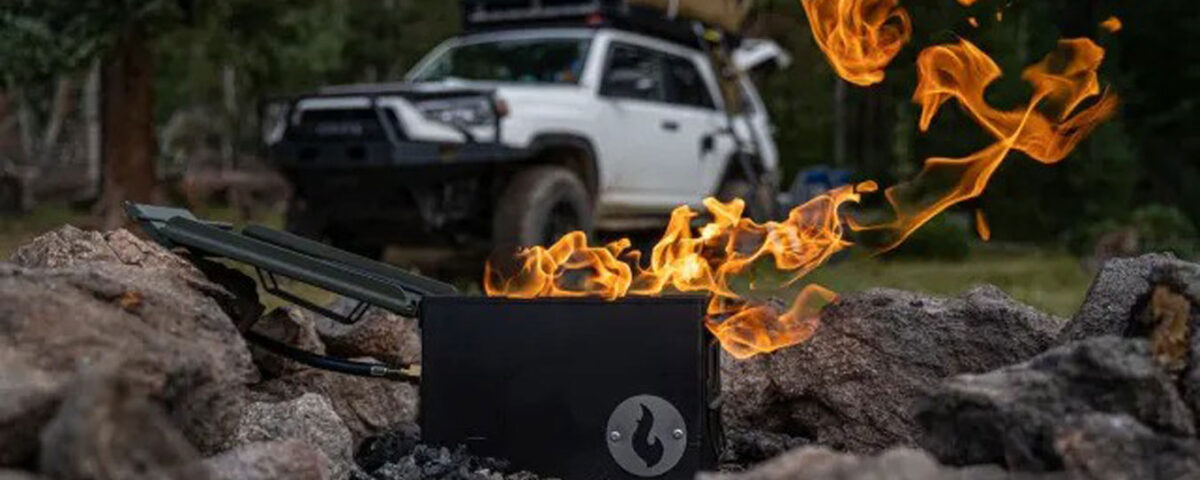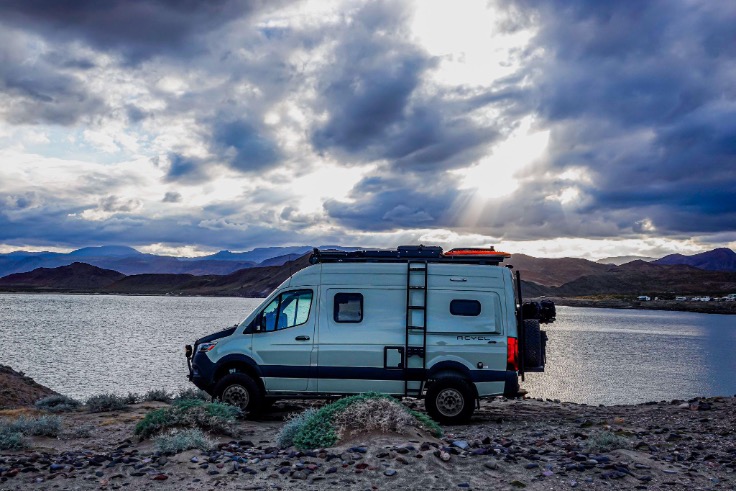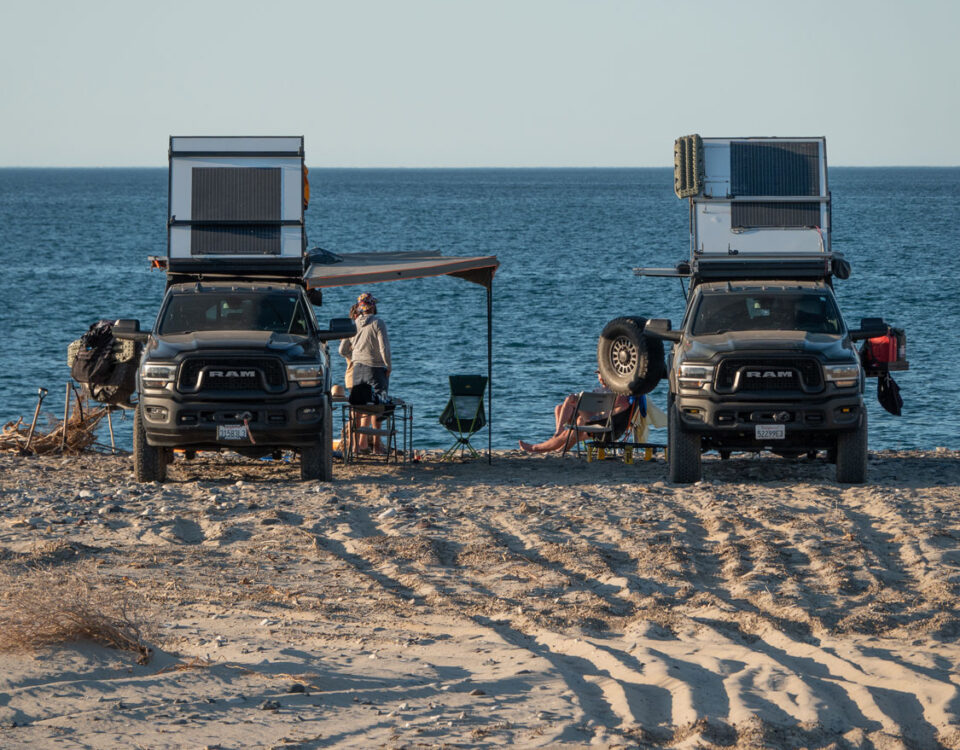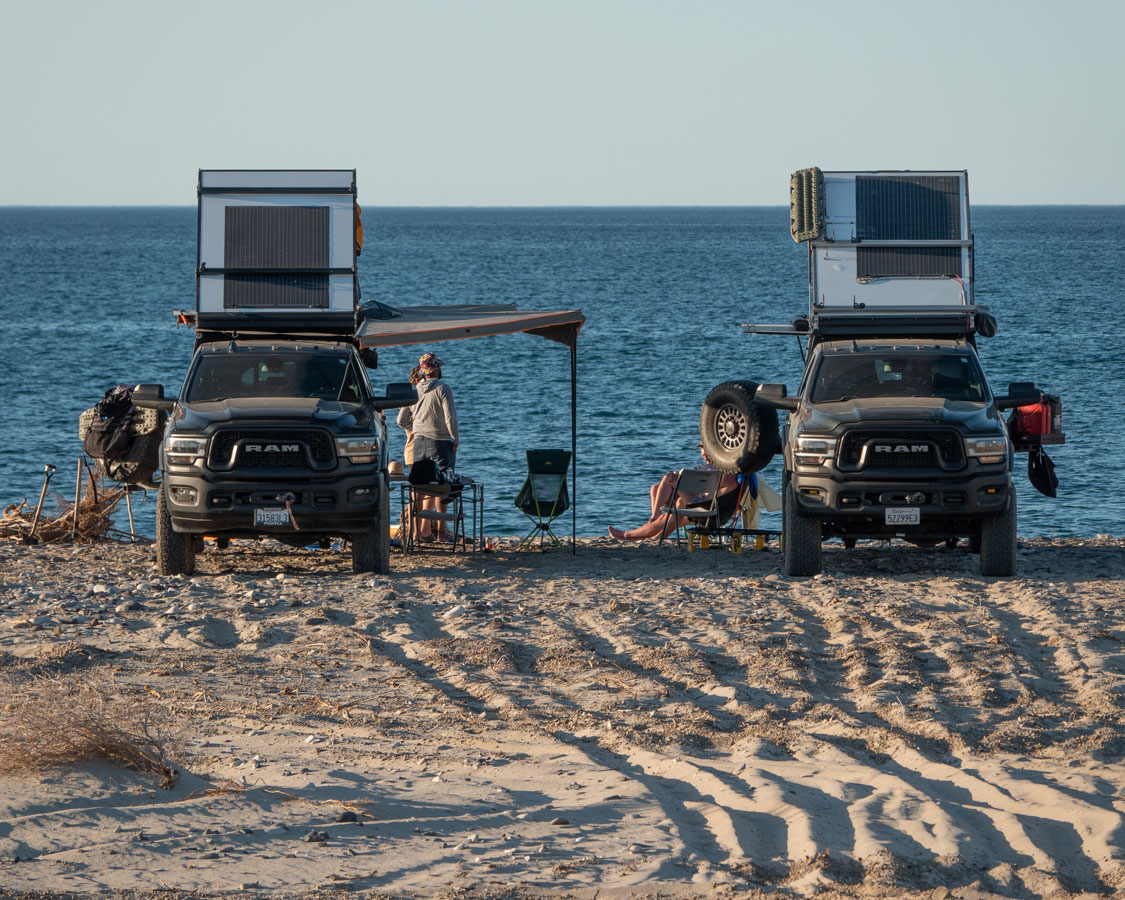
TopoTerra’s 2022 RAM Power Wagon and GoFast Camper – The Ultimate Overlanding Rig
August 20, 2024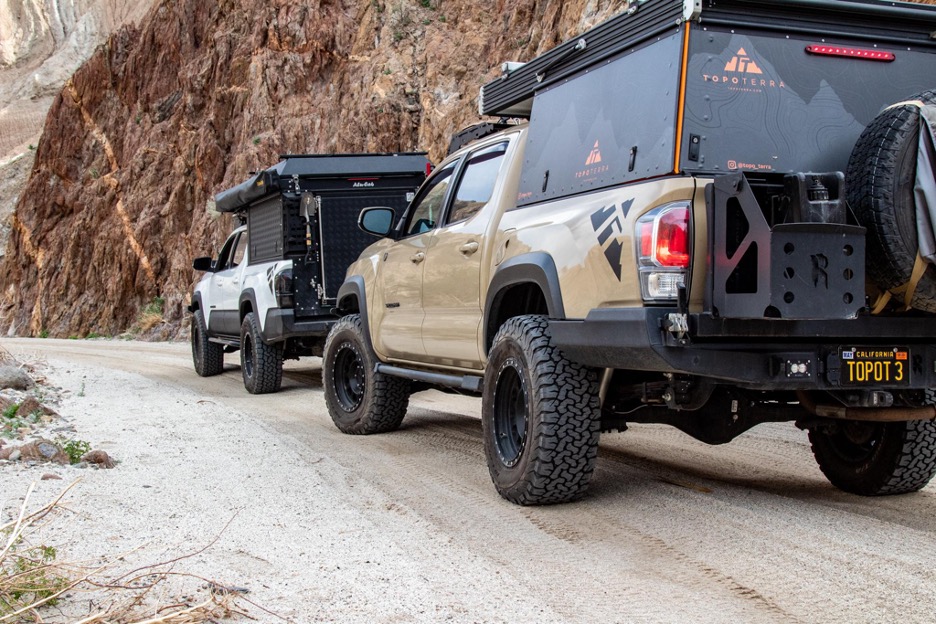
Explore Southern California: Top Overlanding Routes for Adventurers
September 30, 2024The campfire – a quintessential symbol of camping, heat source, and late night storytelling. But for overlanders venturing deep into the backcountry, it’s important to understand the safety requirements of an open flame. In this blog, we’ll explore the benefits of wood vs. propane and the safety measures to consider while camping in backcountry.
The Allure of the Wood Fire: A Backcountry Tradition
For many campers, a wood fire is an essential part of the backcountry experience. The crackling logs, the smoky scent of burning wood, and the mesmerizing flames, all contribute to a sense of connection with nature and a throwback to simpler times. Here’s why wood fires might be the right choice for your overland expedition:
- Cost-Effective: Wood is a readily available fuel source in most wilderness areas. Gathering firewood can be part of the adventure and an easy way to power your night-time activities.
- Ambiance: There’s no denying the unique atmosphere a wood fire creates. The flickering flames, the scent of burning wood, and the warmth radiating outwards all contribute to a truly rustic camping experience.
- Cooking: A wood fire can be used for a variety of cooking tasks, from boiling water for coffee to grilling up a hearty camp meal. The versatility of a campfire makes it a valuable tool for backcountry chefs, especially for those carrying minimal gear.
- Survival Skills: Knowing how to build and maintain a fire is a valuable survival skill that can be crucial in an emergency situation. Overlanders who choose wood fires gain practical experience, which can provide warmth and potentially even signal for help.
The Convenience of Propane: Clean and Simple Camping
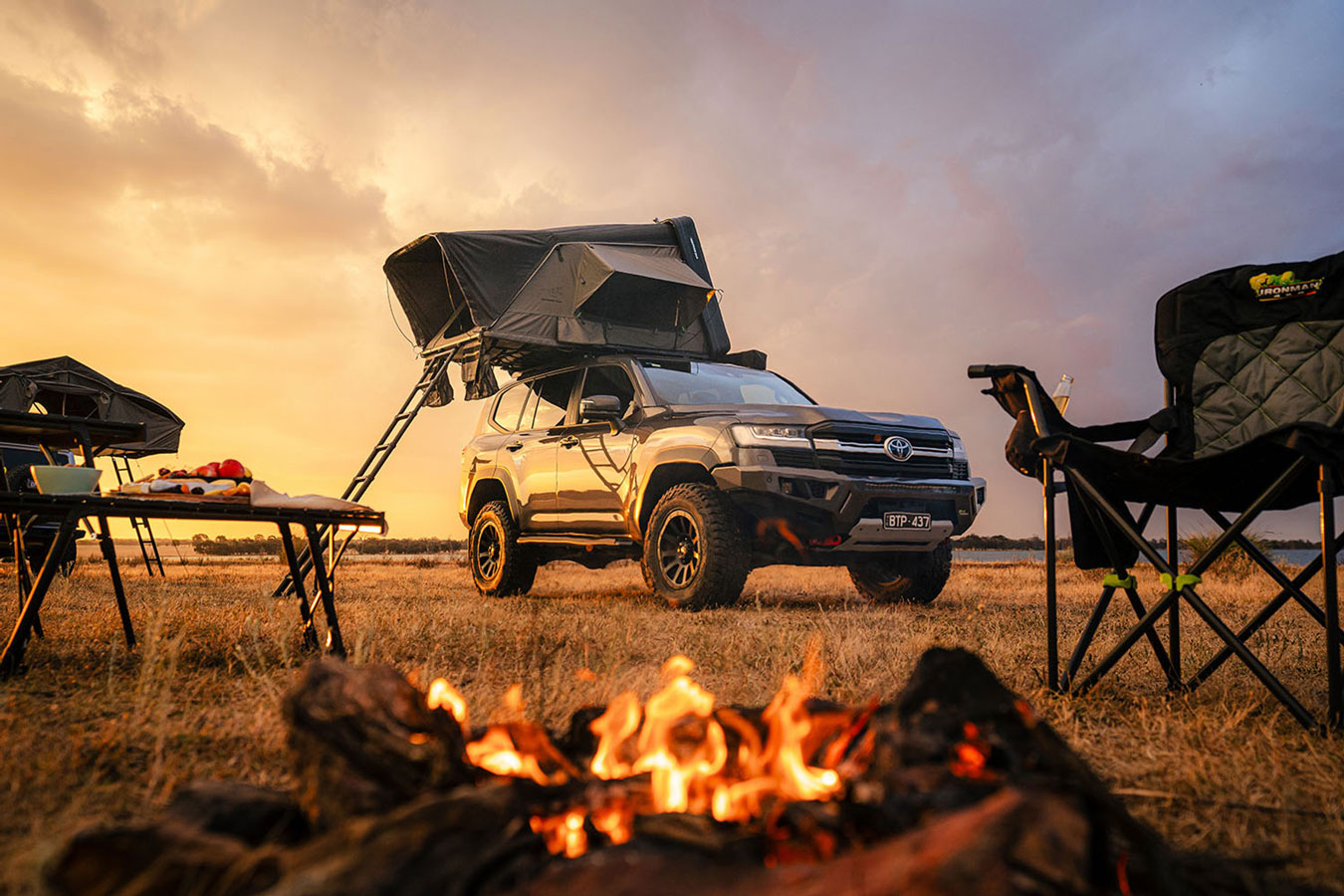
Propane fire pits offer a more user-friendly alternative to wood fires. Here’s why a propane setup might be more suitable for your off-road adventure:
- Easy to Use: No need for fire-starting skills or fiddling with tinder and kindling. Propane fires light instantly with a simple push of a button, making them ideal for beginners or those who want a hassle-free campfire experience.
- Clean and Smokeless: Propane burns clean, producing minimal smoke and ash. This is a major benefit for campers with respiratory issues or those who want to minimize their environmental impact. Additionally, a smokeless fire is less likely to attract unwanted attention from wildlife.
- Leave No Trace: Campfires can leave a significant impact on the environment, with burned fire rings and lingering ash. Propane fires leave virtually no trace, making it easier to adhere to Leave No Trace principles and respect the backcountry.
- Controllable Flame: The flame height and heat output of a propane fire can be easily adjusted with a knob. This allows for precise control over the cooking temperature and warmth generated by the fire.
- Portability: Propane fire pits are often lightweight and compact, making them easy to pack and transport in your overland vehicle – whether it’s a Topoterra 2022 Power Wagon, campervan, rooftop tent, or even a backpacking pack.
Making the Choice: Consider Your Overlanding Style
Ultimately, the best type of fire for your backcountry camping trip depends on your priorities and preferences. Here are some additional factors to consider:
- Regulations: Some national parks and wilderness areas may have restrictions on campfire use due to fire danger or resource protection. Be sure to check the local regulations before setting up any kind of fire.
- Fire Restrictions: During dry seasons or periods of high fire danger, campfires may be completely banned. Propane fires are often allowed even when wood fires are prohibited.
- Accessibility of Firewood: Finding suitable firewood can be challenging in some areas, especially at high altitudes or in deserts. Propane ensures you always have a reliable fuel source.
- Group Size: For larger groups, a wood fire can provide more warmth and a bigger cooking surface. However, propane can be a faster alternative after a long day of hiking!
- Length of Trip: If you’re on a short camping trip, the convenience of propane might outweigh the charm of a wood fire. However, for extended backcountry expeditions, gathering firewood can be a sustainable and cost-effective solution.
- Off-road Capability: Overland vehicles with limited cargo space might benefit from the compact design of a propane fire pit. For larger overland rigs with ample storage, firewood might be a viable option. Contact a TopoTerra specialist to see which rig fits your needs!
Whichever fire you choose, remember to be a responsible camper. Never leave a campfire unattended.

